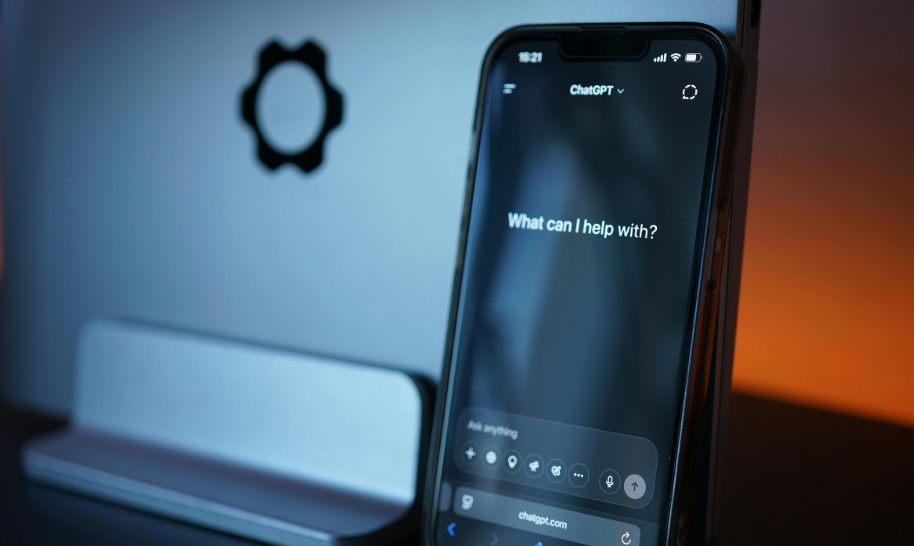As my regular readers know, I frequently serve as a panelist in pitch events. Recently, I decided to start writing about the startups from each event that caught my attention. As someone who has been on both sides of the stage- previously as a founder seeking capital, and now as an investor listening to the visions of the next wave of entrepreneurs- I want to share my learnings. My feedback will primarily focus on potential challenges for the startups. This is not to discourage the founders or imply that the company cannot succeed. Rather, I aim to acknowledge their hard work by providing useful feedback and advice. Ultimately, this all ties into the mission of my company, where we support founders on their entrepreneurial journey by offering technology strategy, product development, and software manufacturing.
ZEKI GUNAY – CRATUS TECH
There is an immense amount of product waste due to mishandling during transportation. Currently, it’s difficult to determine where in the supply chain mishandling occurs. A 2015 study by the American Trucking Association discovered that most truck drivers don’t have established standards for accepting or rejecting temperature-controlled shipments. Cratus Tech is trying to change this with their sensors that ship along with products and goods that can track various parameters during shipping. Cratus offers two product options: one for lesser-value goods and one for higher-value, priced accordingly. The founder, Zeki Gunay, boasted of an 80% profit margin and that he is working with several Fortune 500 companies.
This was my third time watching Gunay's pitch – I commend him for how much his presentation has improved. The first time, he baffled investors with an overly-technical explanation of how the product works. At this event, he first caught our attention with a statistic on product spoilage, then covered the points that investors want to hear about: pain points that he intends to solve, his and the team’s background, and the revenue model. My remaining concern is the competition and how he plans to differentiate: FedEx and a handful of startups already offer monitors for shipping. I look forward to seeing Gunay at future events and seeing how his business evolves in this competitive space.
DAVID PISTONI – ZELEROS
The term disruptive has become so overused, but in this scenario, disruptive is the perfect word. Zeleros is currently in the process of producing a hyperloop transportation system that is capable of traveling over 600 mph. They won awards for Best Design and Best Propulsion Subsystem in the SpaceX Hyperloop Pod Competition in 2016 for their concept. Since then, the focus has been on expanding the team and building a working prototype. They are currently receiving grants from the European Union.
While I love the idea, I feel very strongly that David is pitching to the wrong crowd. All angel investors want to know is: “Once I give you my money, how much will I get in return and when?” Hyperloop is an exciting idea and may result in profits in the long term, but there is still such a long time before the product is ready to go to market. Angel investors just aren’t the right sources of funding for products still in the R&D phase.
GREG TARIFF – FETCH LABS
People undoubtedly love their pets, and Greg Tariff aims on exploiting this. Fetch Labs is a pet health management system. His app (iOS only) enables users to save medical records, receive medication and appointment reminders, offers pet insurance and products from sixteen affiliate companies, and alerts neighbors if the pet is missing. Revenue comes from the commission on pet products and insurance sold through the app and targeted advertising to users. In the three months since launching, the app has grown to over three thousand users, with a two to three dollar customer acquisition cost.
My questions for Tariff were the same as those I posed to Gunay: who is the competition and how will you differentiate from them? The pet product market is dominated by a handful of major companies, with a staggering amount of start-ups racing to claim market share. Take a look at this infographic created by market research firm CB Insights for an idea of how saturated the market is becoming. The timing of market entry is vital to the success of a company. For example, YouTube wasn’t the first video-sharing website, but it was the first in the market at that point in time when internet speeds rose to support video streaming.
NADIN CURIE – CITYCOP
CityCop is the Waze of crime data. Users can either report a crime or suspicious-looking activity or open a map of the surrounding neighborhood to see nearby locations where crimes have occurred. The app has 220 thousand users, located mostly in Latin America. The app is free to users; Curie anticipates revenue will come from collecting user data and selling to interested companies in industries such as travel, transportation, and real estate. “This app is democratizing crime data. Download CityCop so we can outsmart crime together.”
While other investors posed questions to Curie, I searched “crime maps” on Google; there’s no way this idea hasn’t already been thought of and executed. Sure enough, real estate search platform Trulia provides crime heat maps. Several websites such as CrimeReports and SpotCrime already partner with law enforcement agencies to show locations where crimes were committed. Additionally, as I explained to Curie, this is an idea with good intentions, however, he needs to reconsider the revenue model. The current plan of selling data to other companies just isn’t going to provide returns large enough to capture the interest of investors.
MARK DAHR – SMARTCATCH
SmartCatch is a precision fishing technology made up of three parts: remote-controlled HD camera installed in the trawl net, which provides real-time video to the bridge; a trapdoor-like release system, enabling fishermen to quickly release the fish if it’s the wrong species; and data analytics to assist fishermen in planning more efficient and profitable harvests. Each unit sells for $30 thousand, which is mitigated by the returns promised. Dahr claims that his device can pay for itself within a week on larger fishing vessels.
This post has almost taken on a theme of my pointing out competitors in the market- and I’m pleased that Dahr did his research on the market conditions. There are few companies offering trawl net monitoring, and none that are fully digital nor do they provide analytics. Dahr had a solid pitch; the advice I would offer him is to define industry jargon or to use alternative words. SmartCatch ultimately won the pitch event. The company has already passed the San Francisco chapter of Keiretsu Forum’s first screening, and will be pitching to all CA chapters.
That’s all for today- of the several pitches, these were the noteworthy companies. If one of the pitching founders is reading this, please take it in spirit. Like I stated earlier, I write so as to offer guidance, not to dissuade entrepreneurs from pursuing their visions. If you would like to partner with Closeloop, feel free to contact me at info@closeloop.com. As always, my aim is to help startups actualize their ambitions through the resources of Closeloop Technologies.
Stay abreast of what's trending in the world of technology
Cost Breakdown to Build a Custom Logistics Software: Complete Guide
Global logistics is transforming faster than ever. Real-time visibility, automation, and AI...
Logistics Software Development Guide: Types, Features, Industry Solutions & Benefits
The logistics and transportation industry is evolving faster than ever. It’s no longer...
From Hurdle to Success: Conquering the Top 5 Cloud Adoption Challenges
Cloud adoption continues to accelerate across enterprises, yet significant barriers persist....
Gen AI for HR: Scaling Impact and Redefining the Workplace
The human resources landscape stands at a critical inflection point. Generative AI in HR has...




